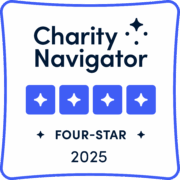Chelsea’s Hope partnered with the UT Southwestern Medical Center (UTSW) in Dallas, Texas, to host the Lafora Disease Biomarker Workshop from August 19-20, 2024. It was designed to educate about how biomarkers can accelerate the path to therapy approval in clinical trials. It also supported several expert discussion panels to reach a consensus on protocols for sample collection and critical markers to track.
We launched ongoing Clinical and Scientific Working Groups at the workshop, too.
Chelsea’s Hope also supported two families’ travel and lodging to Dallas in 2024. Dependent on future funding, we would love to help more families who are interested in participating the biomarkers project in this way. Please get in touch with Dr. Donohue if you would like to be added to a waiting list.
Our goal with the project is to provide a platform for community education about the role of biomarkers in accelerating the path to clinical trials for Lafora disease. Also, we want to learn which biomarkers are the most promising for use in treating Lafora disease. Please check back for more details on the findings!
Frequently Asked Questions about the Biomarker Workshop
What is the schedule?
What is the second session about?
Lafora Biomarker Workshop Session 2: Potential Biomarkers and Endpoints for Lafora Disease
This session is for family members, caregivers, and clinicians. Please join us in learning about ongoing research to identify biomarkers in Lafora disease. Preliminary data from the Natural History Study will be shared during this time, as well as proposals for new methods to identify biomarkers for Lafora. There will be time for Q&A at the end of the session. AI-Generated Closed Caption Translation will be available through Zoom.
How is this different from the previous Natural History Study?
Unlike the Natural History Study, which was funded by a pharmaceutical company, this study is supported and owned by the patient community in collaboration with UTSW. This gives us quicker access and more control over the data obtained through this study.

